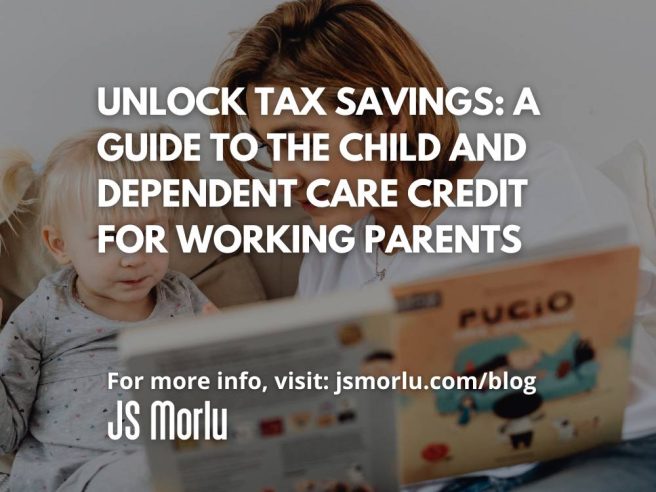Juggling work and childcare can be a challenge, but the good news is there’s tax relief available! The Child and Dependent Care Credit can significantly reduce your federal income taxes, helping you offset the cost of childcare. This article dives deep into the credit, explaining its eligibility requirements, credit percentages, and how to maximize your benefit.
Who Qualifies for the Child and Dependent Care Credit?
This credit is for working parents (or those actively seeking work) who pay for childcare to allow them to work. The child you pay for care for must be under 13 years old and be your dependent. There’s an exception for divorced or separated parents, but that’s a topic for another discussion.
How Much Credit Can You Earn?
The credit is a percentage of your actual childcare expenses, ranging from 20% to 35% depending on your Adjusted Gross Income (AGI). The lower your AGI, the higher the credit percentage. A table is included later in this article to show the credit percentages at various income levels.
What Expenses Qualify?
Qualifying childcare expenses are those that enable you and your spouse (if married) to work or look for work. These expenses can be for daycare centers, after-school programs, babysitters in your home, or care for a disabled spouse or dependent.
There are, however, some limitations:
- The expenses must be paid to someone who is not your spouse, child under 19, or a dependent you claim on your tax return.
- Overnight camps and tutoring programs are not eligible.
- Only expenses for before- and after-school care for kindergarten or higher grades qualify (school expenses for grades below kindergarten are okay).
- Expenses cannot exceed your earned income (whichever spouse earns less) or $3,000 per qualifying child (with a maximum of $6,000 for two or more children).
Maximizing the Credit for Two-Spouse Businesses
If you and your spouse run an unincorporated business together, it’s crucial to report each spouse’s income accurately. This ensures you both qualify for Social Security benefits and the childcare credit. Options include filing a partnership return or electing a qualified joint venture, where each spouse files a separate Schedule C.
Key Takeaways
- The Child and Dependent Care Credit can significantly reduce your tax bill.
- Eligibility hinges on work or job search needs and childcare expenses for dependents under 13.
- The credit percentage is based on your AGI.
- Keep detailed records of childcare expenses and provider information.
- Spouses in unincorporated businesses may need to adjust their income reporting for optimal credit benefits.
Remember, this article provides general information. Consulting a tax professional for personalized advice is always recommended.
In addition to the above, here’s a quick reference table for credit percentages based on AGI:
| AGI Over | But Not Over | Applicable Percent |
| 0 | 15,000 | 35 |
| 15,000 | 17,000 | 34 |
| 17,000 | 19,000 | 33 |
| 19,000 | 21,000 | 32 |
| 21,000 | 23,000 | 31 |
| 23,000 | 25,000 | 30 |
| 25,000 | 27,000 | 29 |
| 27,000 | 29,000 | 28 |
| 29,000 | 31,000 | 27 |
| 31,000 | 33,000 | 26 |
| 33,000 | 35,000 | 25 |
| 35,000 | 37,000 | 24 |
| 37,000 | 39,000 | 23 |
| 39,000 | 41,000 | 22 |
| 41,000 | 43,000 | 21 |
| 43,000 | No Limit | 20 |
By understanding the Child and Dependent Care Credit, you can take advantage of this valuable tax benefit and ease the financial burden of childcare.
JS Morlu LLC is a top-tier accounting firm based in Woodbridge, Virginia, with a team of highly experienced and qualified CPAs and business advisors. We are dedicated to providing comprehensive accounting, tax, and business advisory services to clients throughout the Washington, D.C. Metro Area and the surrounding regions. With over a decade of experience, we have cultivated a deep understanding of our clients’ needs and aspirations. We recognize that our clients seek more than just value-added accounting services; they seek a trusted partner who can guide them towards achieving their business goals and personal financial well-being.
Talk to us || What our clients says about us


